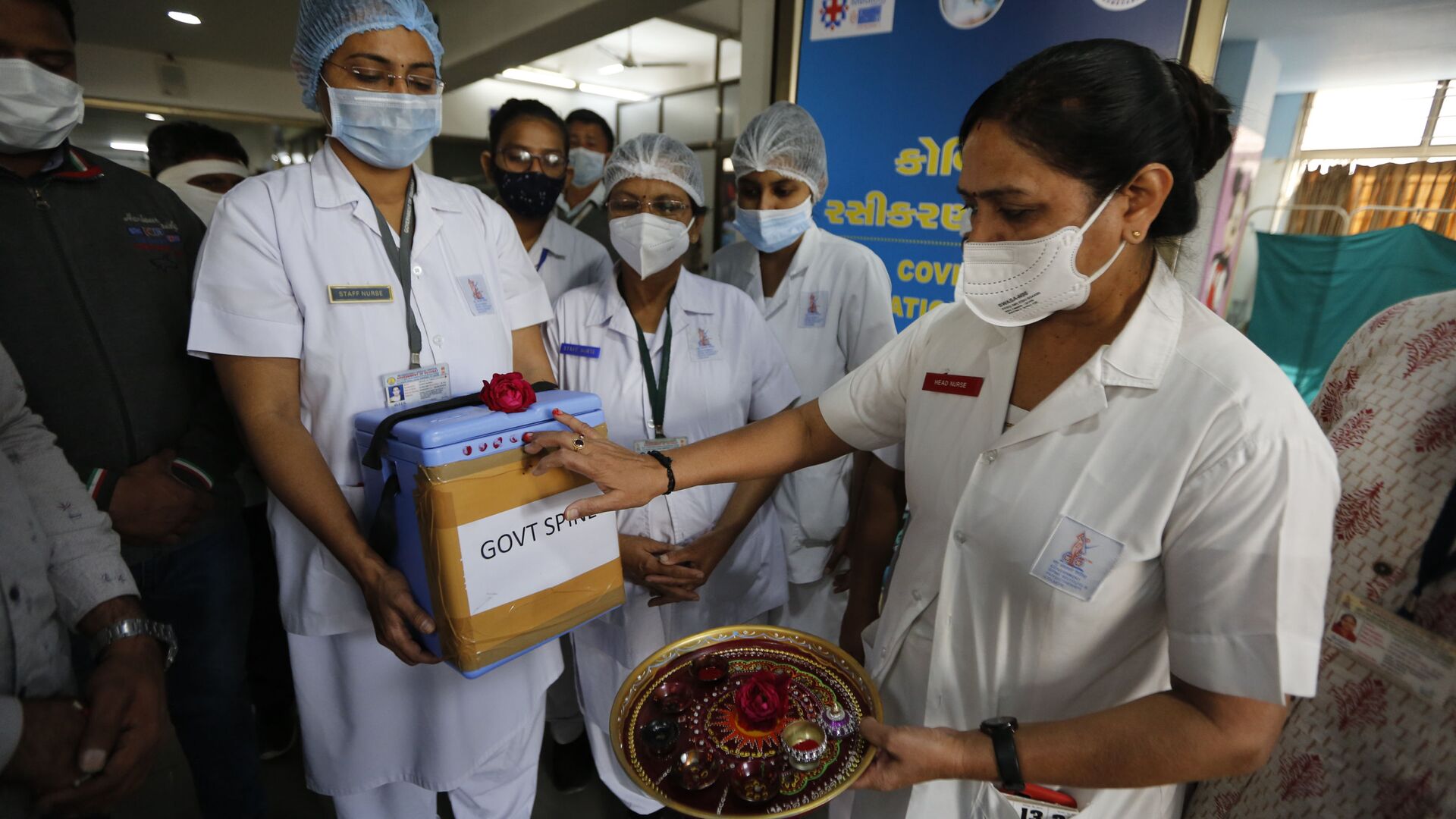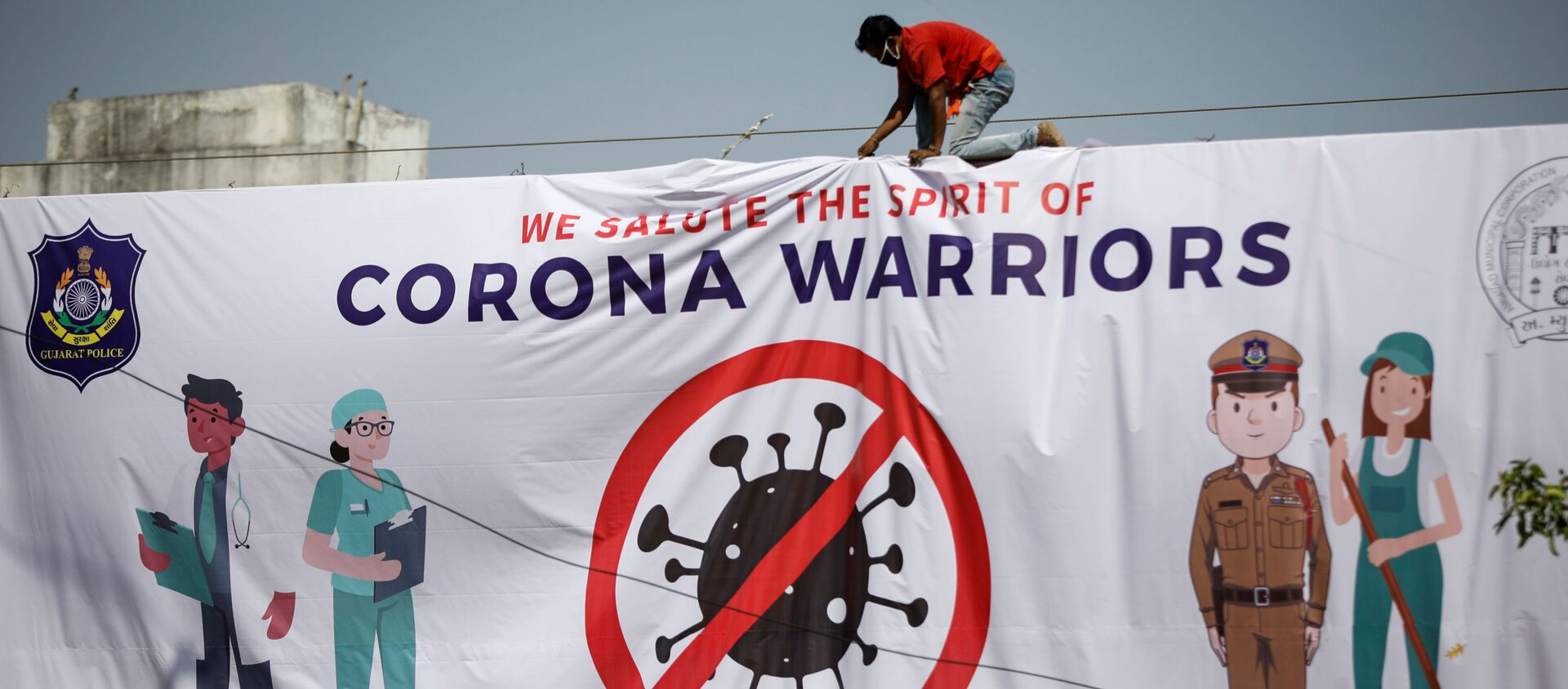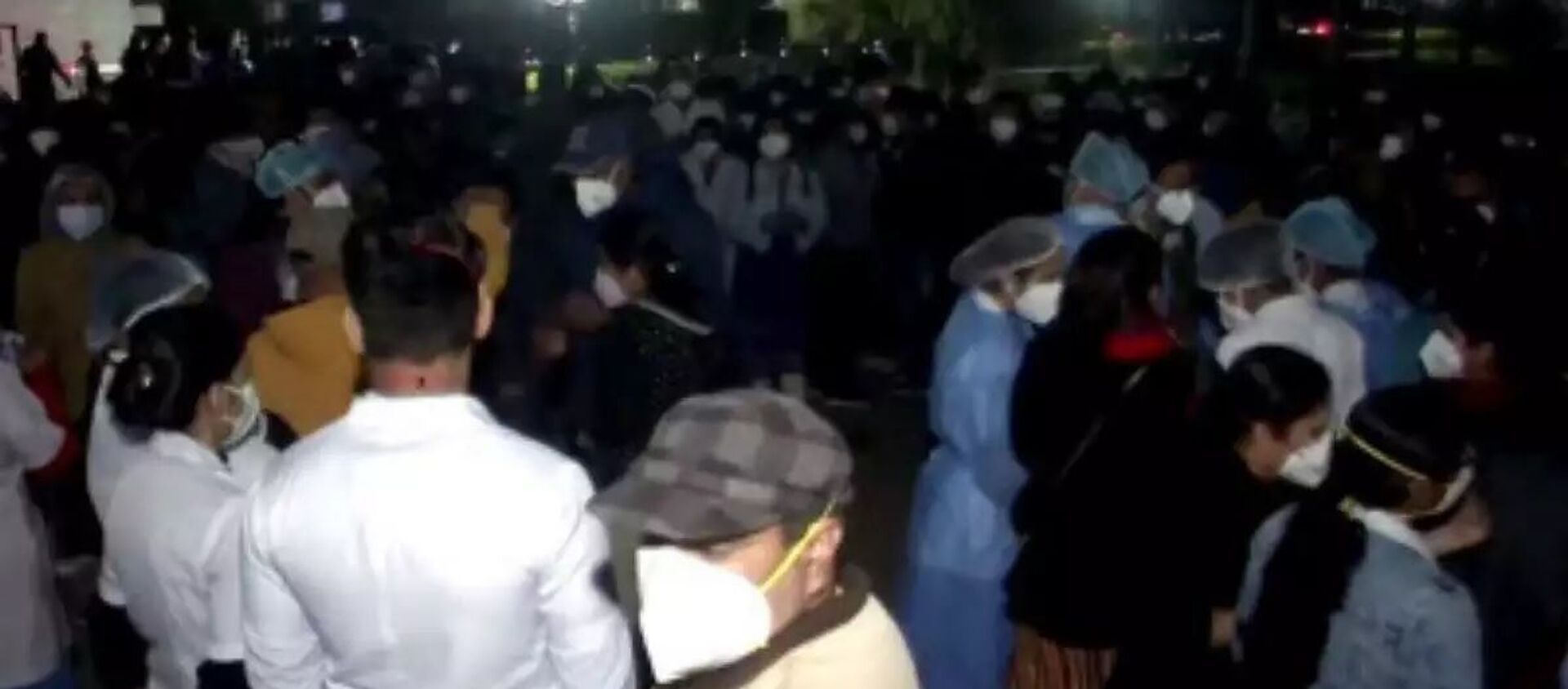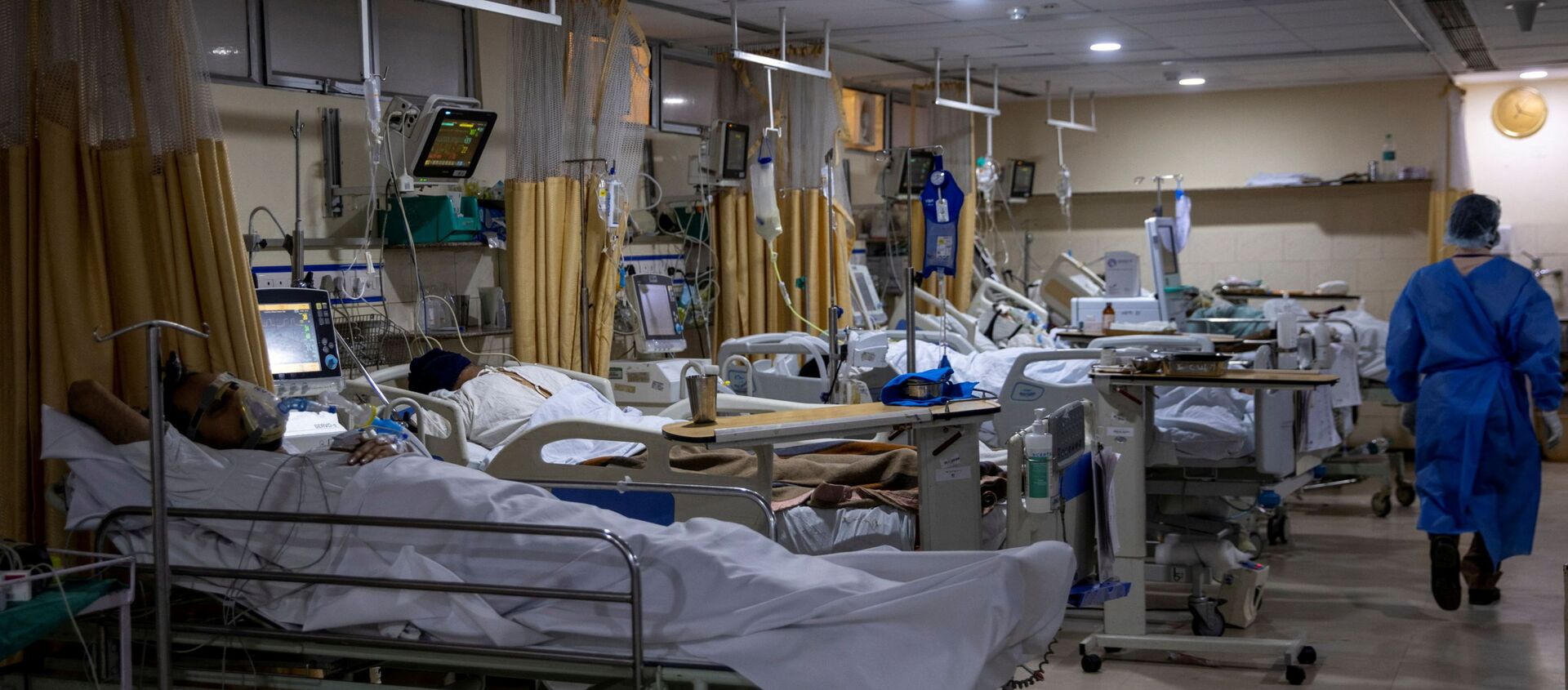The 12th of May is celebrated as “International Nurses Day” to honour the birth of Florence Nightingale, the English nurse, social reformer and statistician who is known to have set the key framework of modern nursing. On this day, countries around the world express their gratitude to the nursing staff at hospitals, clinics and homes for their noble work.
“Their sense of duty, compassion and commitment towards a healthy India is exemplary,” Indian Prime Minister Narendra Modi tweeted on Wednesday, extending warm wishes to India's nursing community.
Talking to Sputnik, nurses from different parts of India said that they’d rather they were appreciated with financial stability, health insurance and timely remuneration, than “empty wishes” from leaders.
“Because of COVID-19, all hospitals wanted to increase the number of working hands they had. So, along with fully trained nurses, hospitals began employing nursing students also on regular duties. But guess what, despite working night and day, we do not get any incentives whatsoever. Even our COVID-19 ward duties are allotted without any bonus or special provisions that may accumulate and make our grades,” said Fatima Khan, a student who is at present working as a full-time nurse in Assam’s Silchar Medical College to help patients.
“We had no idea that [the pandemic] was going to last this long. Earlier we had to manage the general wards as there was shortage of staff in the hospitals but after COVID-19 arrived, everyone was allotted shifts in the COVID-19 ward. It has been extremely challenging, managing studies, long hours in heavy PPE kits, as well as the emotional stress of sometimes not being able to save patients from this deadly virus,” Fatima added, saying that the only thing that is keeping her and other nurses in India going - despite financial instability and risks to life - is the thought of being able to save somebody's life.
In December 2020, more than 5,000 nursing staff from Delhi’s renowned All India Institute of Medical Science (AIIMS) hospital declared an indefinite strike citing 23 reasons, including “anomalies” in salaries. The healthcare staff were demanding salary rises in line with the Indian government’s 6th Pay Commission that was rolled out in July 2006 and focused on removing ambiguity regarding various pay scales in government jobs while guaranteeing a steady rise at regular intervals. The nurses' demands were partially met at the time but there has been no follow-up reported since.
Monica D’Sousa (whose name has been changed for fear of reprisals), a nurse in her twenties, has been working at the Jabalpur Medical College in Madhya Pradesh since completing her nursing course. For the past eight months, she has been working 14-day shifts in the heavily staffed COVID-19 ward of the government facility, followed by 14 days of isolation. Talking to Sputnik, she revealed that the hospital is not even making her and other nurses like her permanent.
“The government is literally not doing anything for us nurses who are risking our life, and the lives of our family and friends, to save the citizens of India. We keep hearing those in charge whisper about the bad financial conditions of government hospitals at the moment – its scary to think we are risking our wellbeing for nothing. Forget bonuses and life insurance, we do not even get paid our basic salaries on time. Why wish us well on ‘International Nurses Day’ when nobody cares about our wellbeing for the rest of the year,” D’Sousa asked.
In 2020, India’s health ministry announced an incentive of INR 1,000 ($13.50) per month to members of the government programme “Accredited Social Health Activist” for undertaking COVID-19 activities for the time they were engaged in this work – but nurses such as Khan and D’ Sousa raise questions about provisions for nurses like them, working in government hospitals on non-permanent positions, without incentives.






